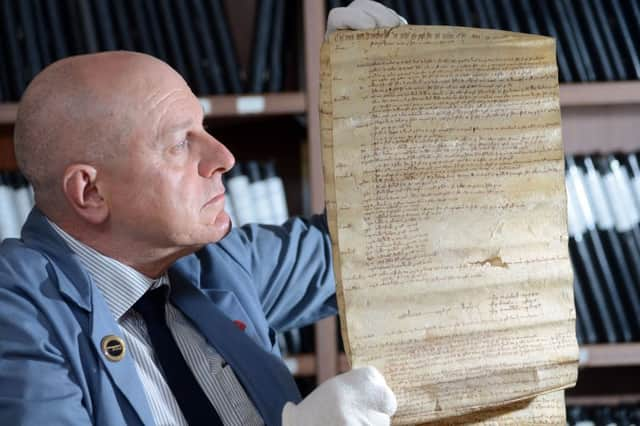When taking wood from Doncaster's hedges was a crime worse than '˜globands'


The Conisbrough Manorial Court Rolls date from 1265 to 1935 and offer a unique insight into the district’s medieval past.
They were secured for the town last month, with a £240,500 grant from the Heritage Lottery Fund.
Advertisement
Hide AdAdvertisement
Hide AdThe documents, consisting of more than 150 parchment rolls and a further 14 volumes, run in an almost unbroken sequence, and cover the Black Death, Peasants’ Revolt and the accession of Richard III. They were previously owned by the Lord of Conisbrough, and are said by the National Archives to be “nationally significant”. They have been held in an archive strongroom in Doncaster since 1982, following a search. Some have now been transcribed and published online.
They will appear alongside collections celebrating Doncaster’s railway, horse racing and mining history, in the new library, which was approved by councillors last month.
The building will include part of the remaining frontage of the former Doncaster Grammar School for Girls, and is to be encased in glass at a cost of £850,000.
The Manor Court met up to a dozen times a year and had the right to govern the sale, purchase and inheritance of land and, in earlier centuries to regulate many aspects of community life. Its records cover 15 towns in Doncaster, 12 in Rotherham and one in Barnsley.
Advertisement
Hide AdAdvertisement
Hide AdThe court roll for 1605, the year of the Gunpowder Plot, reveals that a local widow was fined 4d for “taking a faggot of wood from the hedges”, at a time when fuel was scarce, and that a number of men had been prosecuted for playing an illicit game called “globands”.